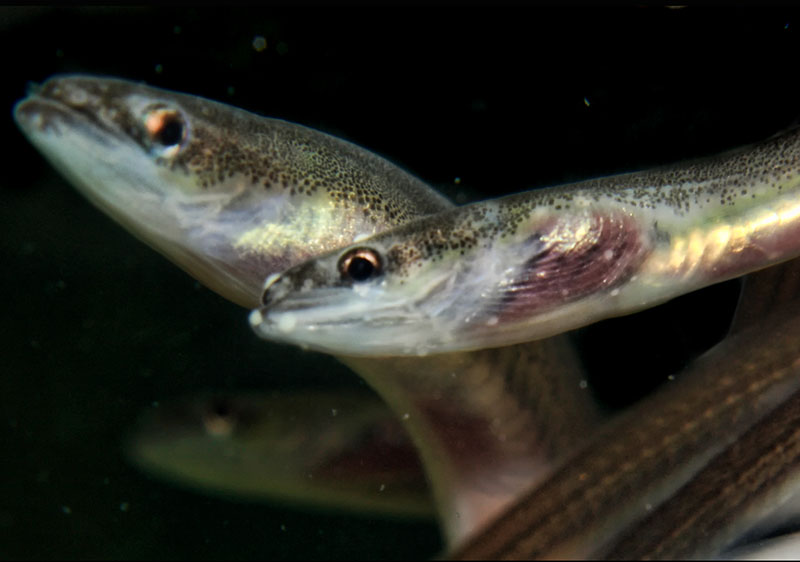[Editor's Note: Representatives at Maine's Department of Marine Resources did not reply to Boats & Gear Editor Paul Molyneaux's request for comment before press time. The original story has been edited to reflect their response.]
Henry Bear is the former representative in the Maine Legislature for the Houlton Band of Maliseet Indians. Three years ago the now-63-year-old tribal leader was issued a summons for overfishing his elver quota by 1/100th of a pound. Elvers are immature American eels, Anguilla rostrata, that ascend Maine rivers in the spring. The elver fishery is big money with the little eels selling for around a $1,000 a pound.
Overfishing elvers is a criminal offense in Maine. When a politically active Native American gets summoned for 1/100th of a pound over his elver quota, the equivalent of getting a criminal speeding ticket for going 50.5 miles per hour in a 50-mile-per-hour speed zone, it raises questions.
Maine’s Department of Marine Resources argues that the answer is simple and says the assertion that Bear is being charged based on the amount of elvers cited, “is inaccurate.”
“Bear was charged with fishing after reaching his elver individual fishing quota,” says Commissioner Pat Keliher in a statement issued by the department. “The charge had nothing to do with the amount by which he exceeded his quota, but its emphasis only contributes to misunderstanding of the violation, and the department’s obligation to regulate and enforce the quota system.”
The state has an obligation to protect the $20 million elver fishery. “The quota system, implemented in 2014, is designed to manage this valuable resource and to ensure that Maine does not exceed its overall quota allotted by the Atlantic States Marine Fisheries Commission,” Keliher writes. “Maine has been able to retain this fishery because of its ability to manage and enforce the quota system and because of the compliance of harvesters.”
The charges led Bear, who is currently studying law at the University of Maine, to investigate the grounds of the state’s authority in light of several treaties, particularly the 1776 Treaty of Watertown, which was signed by his ancestor, Ambrose Bear. While the states of Maine and Massachusetts agree that the treaty has not been extinguished in any way, Maine has long asserted that the Implementing Act of the 1980 Land Claims Settlement Act, brought tribal fisheries under state jurisdiction. But Bear has uncovered evidence that indicates that the Implementing Act was never properly enacted, possibly putting Maine’s Indian land claims back on the table.
“I calculated we’re talking about $20 billion, based on the current value of the land,” says Bear. In February 2019, State Rep. Benjamin Collings introduced a bill, LD-954, to rescind and replace the 1980 Implementing Act.
“They call this a test case,” says Bear. “I call it a political hatchet job.” Bear asserts that the Department of Marine Resources staff reviewed the charges and decided to press the case, against the recommendation of state assistant attorney general fo Waldo County, William Entwisle.
“Bear’s assertion that this investigation was a ‘political hatchet job’ is not just wrong, it’s an irresponsible, defamatory statement,” says Keliher. “The charges were filed based on evidence that indicated a violation of a law. Plain and simple. The specific section of law, §6575-K, prohibits fishing after an individual fishing quota has been met.”
Nonetheless, Bear, who defended himself, argued against the state’s right to regulate Passamaquoddy fisheries and questioned the validity of the Implementing Act that the state contends gives in jurisdiction in this and other cases.
On June 24, at the Belfast District Court, Bear was acquitted of all charges.







